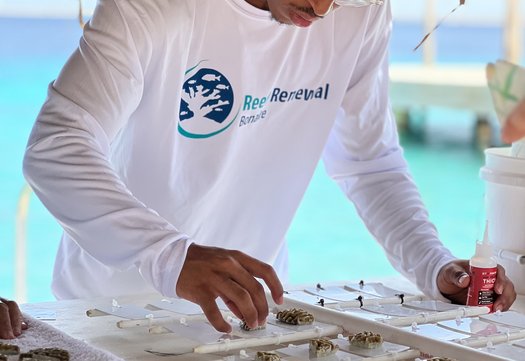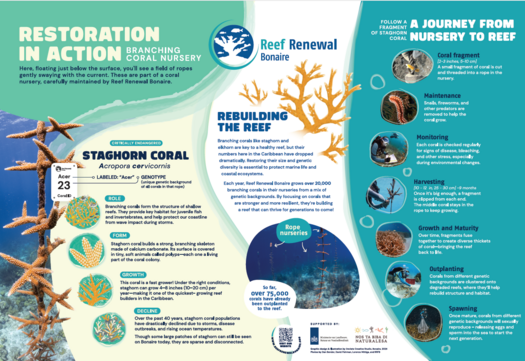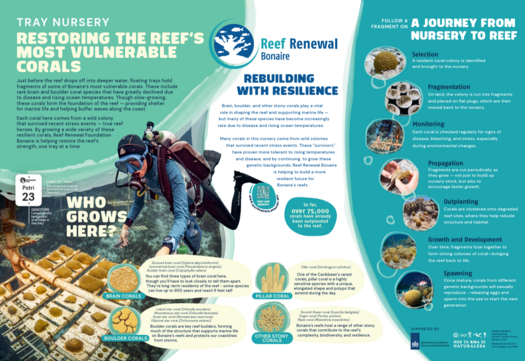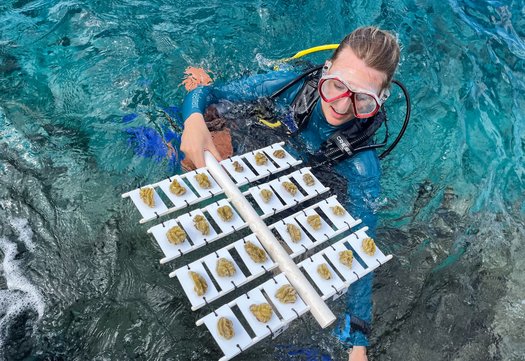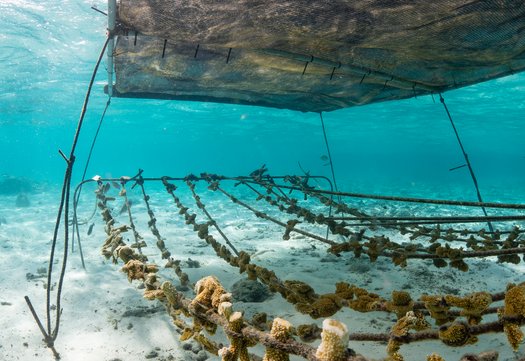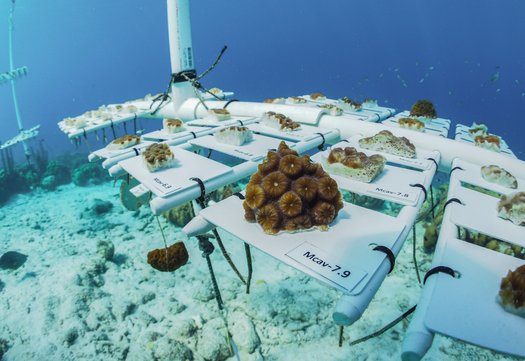Coral Restoration on Bonaire
One reef at a time, we’re growing life back into the ocean.
Beneath the waves, rows of young corals sway with the current. Each tiny branch is a promise—of fish darting through colorful reefs, of coastal waters alive with life.
Reef Renewal Foundation Bonaire is on a five-year mission to rebuild damaged reefs. In floating nurseries, genetically diverse corals grow into hardy colonies. When they’re ready, divers transplant them to sites where the reef has been badly damaged, giving nature the jumpstart it needs.
This is more than planting coral. It’s also about giving vulnerable species a second chance through coral breeding—helping them reproduce when wild populations are too small or too scattered to succeed on their own. And it’s opening the door for everyone—divers, students, volunteers—to play a part in the comeback.
Why this matters now
Coral reefs are coastal guardians. They shelter marine life, protect shorelines, and draw visitors from around the world. But here in Bonaire, rising ocean temperatures, pollution, and storms are breaking down the reef faster than it can recover.
Restoration isn’t optional. It’s urgent. By growing and replanting fast-growing corals, the team can revive reef structure, bring marine life back, and strengthen the island’s resilience in the face of climate change.
How it works here
Reef Renewal is scaling up nurseries and identifying the most resilient strains of coral. The focus is on genetic diversity and heat tolerance—traits that help corals survive in warming seas. During spawning season, the team collects eggs and sperm from corals and nurtures them into new life in controlled conditions. These tiny recruits grow into genetically unique colonies, boosting diversity and resilience before they’re planted back onto the reef. “We can’t cool the ocean,” says Ernst Noyons of Reef Renewal Bonaire, “but we can give our corals the best place to grow.”
Volunteers and youth groups join trained divers in planting thousands of corals. Today, Bonaire’s nursery capacity has grown to nearly 20,000 corals, and that knowledge is already inspiring reef recovery efforts on other islands.
The change we see
Restored reefs draw back fish, lobster, and sea life. The coastline becomes stronger against erosion. And the community—locals and visitors alike—gain a deeper understanding of why reefs matter.
Bonaire’s work is becoming a blueprint for coral restoration in warming oceans worldwide.
